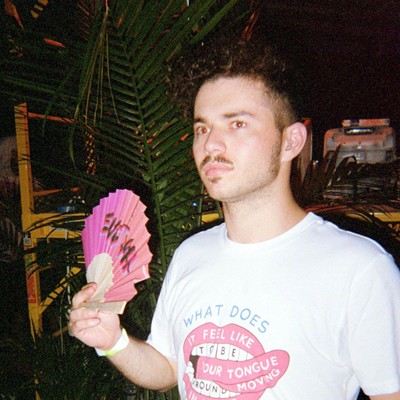In the hours following yesterday’s tragedy at Pulse, a gay nightclub in Orlando, the internet was flooded with opinions. Many of them spoke with something resembling hope, looking toward the subsequent charity and unity shown by the collective Orlando community as lines to donate blood wrapped around the block. Some turned their focus to Orlando’s neighbors, where vigils in Miami, Lake Worth, and elsewhere served to humanize a state so often reduced to a late-night punchline. Others added to the ever-growing and seemingly infinite library of literature on American gun culture and/or radical Islam.
And how could they not? Attempting to forge sense from the senseless has become a distinctly American
Although mostly authored with noble intentions, much of the content surrounding what is now the most severe mass shooting in U.S. history failed to reconcile the vicious nature of the attack with the subversive location in which it took place. That is to say, acknowledging the profound blow stricken upon the U.S.’ LGBTQ community would mean confronting the historical and social precedents that necessitated Pulse’s very existence.
This was not lost upon Richard Kim, the executive editor of The Nation. “Gay bars are therapy for people who can’t afford therapy; temples for people who lost their religion, or whose religion lost them; homes for folk without families,” Kim writes in his piece Please Don’t Stop the Music. “They take sound and fabric and flesh from the ordinary world, and under cover of darkness and the influences of alcohol or drugs, transform it all into something that scrapes up against utopia.”
You don’t need to identify as LGBTQ or have danced in a gay club to share in Kim’s sentiment — if you live in Miami and are of clubbing age, you certainly didn’t need his writing to tell you of the transcendent experience a nightclub can offer. With or without alcohol-induced jubilance or cocaine-fueled mania, the nightclub represents a place of escape, transformation, and for a lucky few, maturation. Nightclubs provide the contradictory yet coherent proposition of achieving togetherness through anonymity, united in deference to the deity commanding the wheels of steel. Ideally, your favorite club is where you’ll meet your future best friend, discover several life-affirming 12’’ remixes, and learn to translate dancing like a jackass into utter confidence and self-control.
In Miami, it happens every night. We pack ourselves into dark clubs and listen to loud music. Elbow to elbow, we forget about what's happening outside the doors and get lost in these nocturnal sanctuaries. For Miamians, a small part of the terror felt over the mass shooting at Pulse was due to its proximity. So few variables would have needed to be different for this to have happened in our own city.
For many Americans across the U.S., expressing themselves freely in their nightclub of choice is not that far removed from their day-to-day experiences. But to countless Miami residents across multiple decades, hitting the club has been tantamount to going to church. Under the colorful neon lights substituting those of the pearly white variety, dancing fulfills the role of a more physical — and many would contend more fulfilling — form of confession and eventual redemption. This is a city that has long struggled with issues of race, class, and, indeed, sexuality. As such, Miami’s history with reference to its LGBTQ population has been alternatively triumphant and downright despairing — thankfully, we can now look back at it as being unintentionally hilarious, too.
But even with the city’s social turbulence and rapid changes, one thing has remained a reliable fixture of LGBTQ culture: our clubs. Miami nightlife, that beloved institution that is the subject of global fascination and many a hip-hop anthem, could not and would not exist without the city’s undeniably gay character.
Because Miami is a city that so proudly wears its nightclubs and homosexuality on its fabulously technicolor sleeve, yesterday’s events in Orlando struck a particularly resonant chord here. And unfortunately, testimony given by the perpetrator’s father has tethered both Miami and its gay community to Pulse’s narrative.
Lisa Simpson got it right when she unwittingly described Florida as a monster. Florida may be a monster, but it is a glorious one, rejecting the homogeneity that characterizes various other states in favor of a loud, celebratory, multicultural mishmash of pluralistic pride. In many respects, Miami acts as a microcosm of the entire state, albeit one that’s dialed up to 11. With that in mind, this is why our nightlife cannot afford to falter at the first sign of trouble. We are lucky to live in a city that affords its citizens the choice to be who they want to be on any given night — the moment that entering a nightclub resembles boarding an airplane, the grand Miami experiment will have failed.
Florida overcame Anita Bryant’s brand of puerile hatred — we can beat this too.











